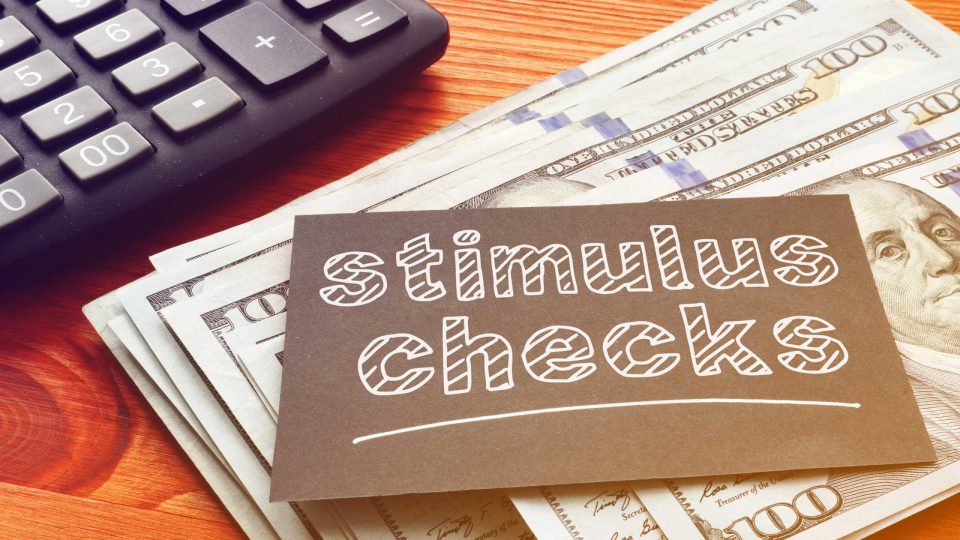KEY POINTS
- Financial services firm IPX 1031 found that 49% of Americans say they would consider using another government stimulus check to take a first or second vacation this year.
- Travel shouldn’t be a top priority during the coronavirus pandemic, say financial advisors, who recommend stashing the cash and delaying major purchases.
- Should you be financially sound, however, a vacation for mental health reasons might not be out of the question.
Practically half of all Americans would consider scheduling a vacation if they got a 2nd stimulus check, a study has found. Financial consultants, nevertheless, say that’s probably not the best way to spend the cash– unless you’ve already crossed all your “t’s” and dotted every “i” when it concerns your finances.
To that point, 49% of Americans surveyed said they’d be more likely to book either their very first or second trip this year if they get another stimulus check from the federal government, according to monetary services firm IPX 1031. That compares to 20% who are currently planning a trip and 27% who’s currently vacationed considering that the coronavirus pandemic began. (The business, which concentrates on 1031 tax-deferred exchanges, surveyed 2,207 Americans ages 18 to 79 in early July.)
The federal government sent stimulus payments of up to $1,200 per adult and $500 per reliant kid under age 17 earlier this year, based on income levels, to assist Americans impacted by the pandemic and ensuing financial decline. Negotiations in between Democrats and Republicans in Congress on the 2nd round of such payments as part of a more comprehensive relief plan are presently deadlocked, although it’s said both celebrations support more checks in concept.
Certified monetary planner Douglas Boneparth, president of Bone Fide Wealth in New York, stated he found the survey findings “fascinating,” thinking about that stimulus was designed “to make certain people can pay their costs.”
“If my customers were getting a stimulus check, I would advise that they keep it in cash if they need to support liquidity and feel good about a very unsure future,” he stated.
Charleston, South Carolina-based CFP Tim Maurer, director of consultant development at Buckingham Wealth Partners, stated he advises the following three cash transfer to clients in this “time of increased uncertainty”:
- Delaying major purchases;
- Hoarding cash; and
- Expanding credit lines.
“Those are three solid suggestions if it is a security that you seek in these uncertain times … and not included in them is going on getaway,” he added.
On the other hand, if you have not been adversely affected so far– i.e., have not lost your job or needed to dip into cost savings– and do not expect requiring the stimulus payment for basics, utilize your best judgment, Boneparth said.
“Eventually, I would motivate anybody entering any amount of money to understand what their financial objectives are so that they can best allocate that cash towards them,” he said. “If that’s a getaway or spending related to staying sane during these crazy times, there’s an argument to be made about getaways, however, there certainly are health dangers to consider.”
For his part, Maurer concurred that after months of lockdown in the house, personal mental health factors to consider like “blowing off a little steam or decompressing with some getaway time” might be as worthwhile as financial ones.
“Perhaps there’s a merger of the two: Perhaps you were preparing to go on a vacation that was already allocated and it was necessarily canceled– so you plan another getaway that isn’t quite as costly and saves some cash in the process,” he stated. “Your mental health is just as crucial as your physical health– wear your mask– and your financial health.

“So who am I to evaluate if you pick to spend some of that second stimulus look at a getaway?” Maurer added.
That stated, IPX 1031 found that, nowadays, increased psychological health may not be the end result of a getaway, after all.
“Covid-19 has certainly modified how Americans have vacationed this summer,” stated IPX 1031 spokesperson Collin Czarnecki, with lots of more careful and stressed previously, throughout, and after a trip. “Taking a vacation … can become counterproductive when services or destinations are closed and social distancing is always on your mind.”
IPX 1031′& prime; s survey revealed that, due to Covid-19, amongst those who traveled:
- 20% weren’t able to fully unwind.
- 27% felt tension throughout the vacation.
- 62% regret taking a trip.
- 83% invested less on getaway.
Among survey participants who still plan to travel, IPX 1031 found that:
- 58% worry they will not be able to unwind.
- 62% will spend less getaway.
- 71% stress overstress or anxiety on holiday.
The firm also discovered that 43% dealt with the holiday or prepared to, 59% have examined work e-mail while away or strategy to, and 85% with a villa have worked remotely from there– hardly a recipe for relaxation or a great return on vacation money spent.
“Now, more than ever, individuals are expendable at their tasks, with lots of business either laying off or furloughing large portions of their labor force,” said IPX 1031 spokesman Matt Zajechowski. “So I feel like this is driving more individuals to have concerns disconnecting from their job, even one trip.”
In the end, Maurer urges care and vigilance– even to the point of staying at home. “Thinking about the intrinsic unpredictability of the times we’re residing in, I highly recommend losing weight your vacation– possibly even to a ‘staycation’– so that you can also have a bit more sleep-at-night peace, with some additional money to buffer you from that which we can’t forecast.”

